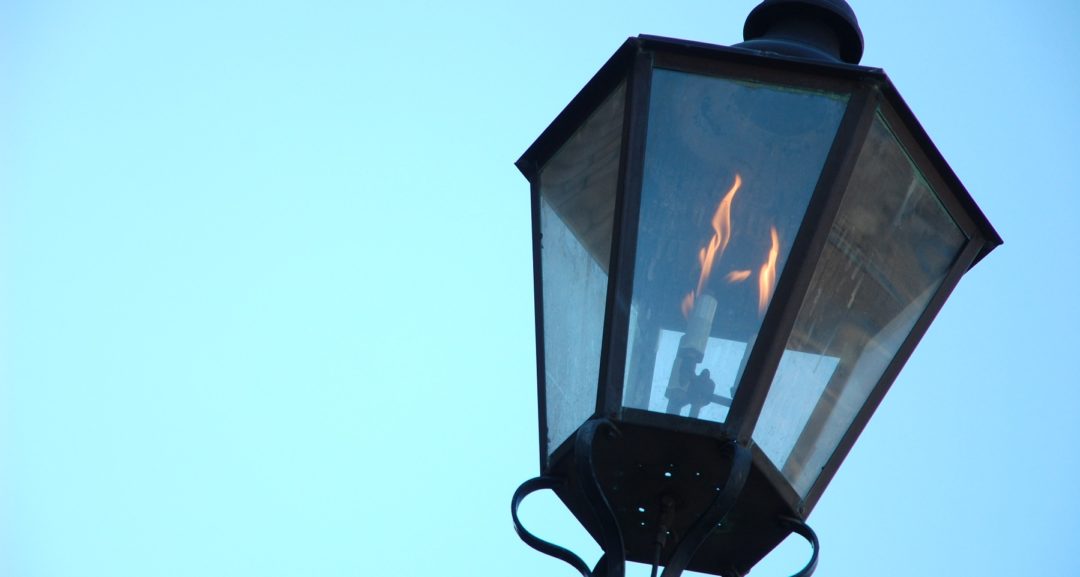The ride home from church was the most miserable thirteen minutes I’d ever spent in a car. My parents were gone, in south Florida dealing with my late uncle’s house and furniture and baseball card collection, so a pastor’s daughter was staying with my sister and me over the weekend since we weren’t quite old enough to be left by ourselves.
That morning, in church, the pastor had taught from the Parable of the Talents, and his words have been branded into my memory. Even though over a decade has come and gone since that Sunday, I can feel the pew underneath me, see the wood paneling on the wall next to me, watch the light filtering in through wavy, colored glass. I feel my stomach wrench as I see necks in the congregation stiffen, fighting the urge to turn around and look at me. I’m still not sure what most of those people felt for me in that moment: pity or recrimination?
He spoke about the man who buried his talent into the sand, and then, without looking directly at me, told everyone that “a young lady sitting here in this church service” had stopped playing the piano for the congregational singing because I was rebelling against God and burying my talent in the sand. According to him, it had nothing to do with the tendonitis that we were desperately trying to heal without needing surgery. No, I was vain and ambitious and God was going to punish me for my sin.
I got home and went straight into my parent’s bedroom. I shut the door behind me, grabbed the phone from a nightstand, and then shut myself in my mother’s closet. Curled up in her laundry, I called my parents and sobbed out what had happened.
My father demanded a private meeting with the pastor the very next week. Calmly but fiercely he confronted the pastor over what he’d done, and that he expected an apology. Without missing a beat, the pastor looked my father and I dead square in the eyes and lied. Yes, he’d mentioned that someone wasn’t using their piano talent, but he was not talking about me. He was talking about a different person, an older man who could also play the piano. I had misunderstood him. I’d taken what he’d said personally when I shouldn’t have—but shouldn’t we take this as a sign that the Holy Spirit was convicting me, if I’d heard him talk about a different person and assumed it applied to myself?
I protested—“no, you said ‘a young lady sitting here in this church service’”—but he stuck with his hideous lie. All through that horrifying argument he insisted that I’d over-reacted, that I was being overly defensive, that I was selfishly and childishly making everything about me. Toward the end he started swaying my father. Wasn’t it reasonable that I’d just misunderstood him? I even started doubting myself. Maybe he hadn’t attacked me, personally, from the pulpit. Maybe he was right.
***
Over the last few years, I’ve watched as “gaslighting” has become a more familiar term to many of us. The first time I encountered the word, it was almost a the-veil-has-parted, scales-have-fallen-from-my-eyes moment. I found peace and comfort in that word, because I finally understood what had been happening to me for most of my life. What that pastor did was gaslighting. What an abusive rapist did to me was gaslighting. It made everything make sense. Finally, I had a word for what I had only been able to experience silently: desperation so real, so hard, I could choke on it. Panic, confusion, and humiliation all at once.
Gaslighting works because it is so utterly shocking, so incomprehensible. What kind of a person tells his wife that she’s imagining things for thinking the gaslights have not changed after he just changed them? Who would do that? Our generally empathetic, rational minds assume: no one. No one could do that. Instead, the more reasonable answer is that our memory is faulty, that our comprehension is flawed. After all, we’re only human. We can make mistakes. We don’t always remember things accurately.
Abusers do this specifically to destabilize their victims, to cause them to mistrust their own perception. It’s a core tactic that makes the rest of the abuse possible: the victim learns to trust the abuser to provide the narrative. Over time, their very identity can be supplanted by what the abuser wants.
For years, I was grateful that gaslighting was getting so much attention, because it’s one of the most alien parts of a victim’s life, and it can be extremely difficult to explain. Just remembering—reliving—that meeting in the pastor’s office makes me shake. I physically flinch away from thinking about it. All the times an abuser has twisted everything around me until I doubt my own memory and sense of self … it’s devastating, and the effects are long lasting. It took a very long time for me to be confident in my memory of that sermon, and even now I can feel the stirrings of doubt.
However, I’m becoming convinced that “gaslighting” is going to lose its usefulness because people are casually misusing it. There have been a few times over the last year, even, where I’ve seen people use “gaslighting” maliciously.
As people have begun using the term more frequently, what has stayed with it is the implicit moral judgment it makes: gaslighting is not just bad, not just impolite, not just harmful: it’s abusive. Describing a person’s conversation, or social media comment/interaction (since, let’s be honest, I’ve seen this happen most often on Facebook and Twitter), as “gaslighting” means that the person opposing you in the discussion is being more than unfair, they’re being abusive. Once the accusation has been made, it substantively changes the interaction. Suddenly, it’s about whether or not this person is behaving abusively, and that’s an incredibly serious matter that deserves the proper amount of concern. Considering this accusation gets tossed out among people who know what gaslighting even is, the reaction is usually swift and nearly universal: stop. Get out, get away from us, we don’t serve your kind here.
In a way, I understand why it happens. As an abuse survivor, one of the things that can send me for a loop is when someone questions my honesty or accuses me of deceit. Since I’m a feminist on the internet who frequently talks about sexual assault, that happens … well, it happens a lot. In the beginning, someone saying I’m a liar would keep me up at night. I spent a lot of time defending myself, trying to prove them wrong, until I realized how absolutely pointless that was. Even after developing a pretty thick skin, “you’re lying!” still bothers me in a way few other types of harassment do.
When I’m in a discussion, I can sometimes feel triggered by someone dismissing me, denying my experiences, belittling them, or just plain disagreeing. Sometimes, it feels like I’m back in that office being gaslighted into believing I am capable of making up entire statements out of hole cloth and mistaking my imagination for the truth. So, I get it. I get why we could be in a conversation, especially with a hostile person, and start feeling that way again and trusting our instincts. If we feel the same way we did when we were being gaslighted, well, then, they’re gaslighting.
I think we need to be more cautious.
Over the last several years, I’ve seen “gaslighting” come out as an accusation so many times when what is happening is not actually gaslighting. People can be jerks without resorting to gaslighting. People can be obtuse—even deliberately obtuse. Our experiences can be dismissed, and we can be made to feel irrelevant, noisy, bothersome. Our totally appropriate anger can be derided as an over-reaction. People can be infuriating when they refuse to trust the words we’ve chosen for our stories. They can lie and manipulate. It’s utterly galling when any of the above happens, and that sort of behavior deserves to be called out. Expecting our discussion partners—even hostile ones—to converse in good faith is reasonable and we should hold them to that standard.
I want future abuse survivors to hear the term “gaslighting” for the first time and have it mean something to them, the way it did for me. I want it to exist for them as the beacon it was for me, for it to restore them to themselves. I want it to say to them “you can trust yourself, you aren’t crazy, you are not imagining it.”
That’s not going to happen if we keep accusing people of “gaslighting” when we actually mean “you’re being an ass, please stop.”
Photography by Steve Snodgrass


